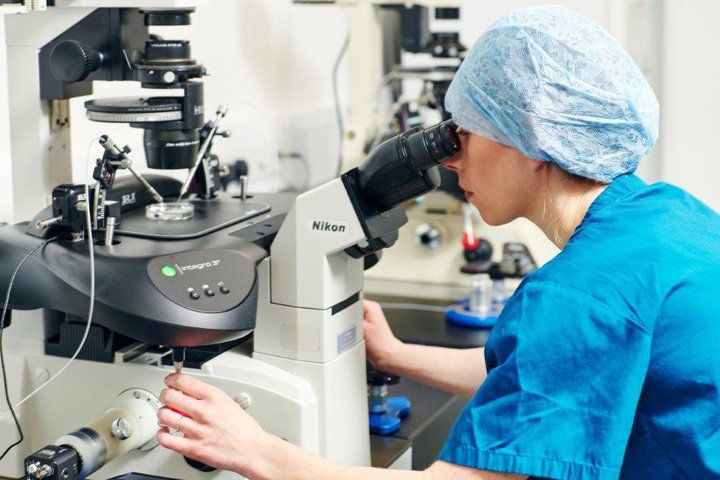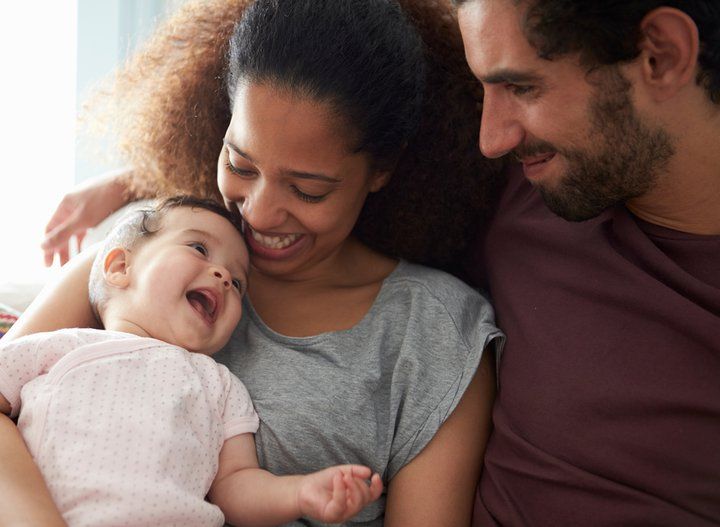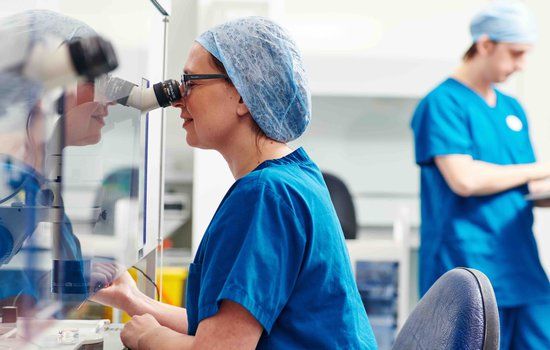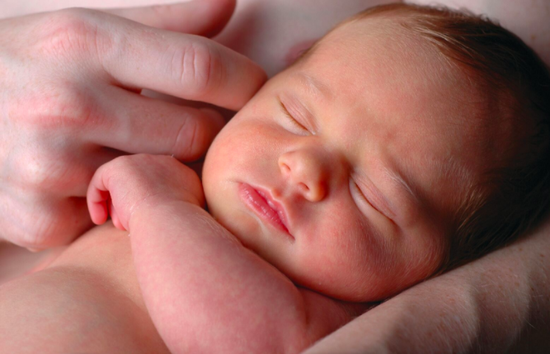
How does IVF work? Although the IVF process is tailored for each patient, here is your general, step-by-step guide to a typical IVF cycle at Manchester Fertility:
Step 1: Pre-treatment tests
IVF begins with a thorough fertility assessment. This is so we can tailor IVF for you, for your best chance of pregnancy. Pre-treatment tests include ultrasound scans, ovarian reserve, hormone tests and, if you are using partner sperm, semen analysis.
We also perform a general health and lifestyle check for each of you, to make sure that there are no factors that could compromise your chance of IVF success.
Step 2: Consultation with a fertility doctor
The next step is to see a fertility doctor for all the results of your tests and to go through your medical history. Your doctor will explain the specific IVF protocol that is best for you and why, and if any additional treatments or procedures are advised.
Your doctor is here to listen, support and reassure you, so do ask questions if you are not sure about any aspect of your results or recommended treatment.
At the end of your consultation you will understand what your IVF cycle entails with a full breakdown of how much it costs, together with available funding options.
When you are ready to begin treatment, consent is completed online using EngagedMD, an innovative patient-focused program which also gives you educational videos about your IVF journey.
Step 3: The start of IVF - Ovarian stimulation
Your IVF cycle starts with the process of ovarian stimulation, which begins on Day 1 of your period. Our fertility nurses will show you how to self-inject your fertility medications, which are hormones naturally produced by the body for egg growth and ovulation.
The type of fertility drugs you take, the dosage and timing will be unique to you, focused on achieving a good number of quality eggs for your IVF cycle. You will be carefully monitored during this phase of IVF with regular scans at our clinic to check your ovarian response.

Step 4: Egg maturation
When your scan indicates your eggs are at the right growth stage, you will administer what is known as the ‘trigger’ injection. This is a hormone that helps your eggs to go through the final growth stage and releases the eggs from the follicles, so we can perform egg collection.
Step 5: Egg collection
Egg collection is performed in our clinic theatre, under local anaesthetic and oral sedation for your comfort. Your fertility doctor will retrieve your eggs under ultrasound guidance and tell you how many eggs you have for your IVF cycle. You will be looked after by our theatre team including anaesthetists and fertility nurses.
If you are using partner sperm, he will give a sample on the same day as your egg collection, so his sperm is ready in our lab to inseminate your eggs.
Step 6: Insemination of eggs
Your eggs are immediately taken to our IVF laboratory where they will be added to a prepared washed sample of your partner’s sperm or donor sperm.
Sperm washing helps to concentrate the best sperm in the sample for fertilisation. Or eggs can be inseminated via ICSI, a refinement of IVF, where a single healthy sperm is injected directly into each egg.
Step 7: Fertilisation
Fertilisation usually occurs around 16-18 hours after insemination. Our lab team will monitor your eggs and will call you to advise if any of your eggs have fertilised and how many embryos you have.
Step 8: Embryo development
Your embryos are placed in an incubator where they grow in our IVF lab for the next two to five days, in optimum conditions for embryo development.
Embryos are developed through standard culture or in our Embryoscopes, which are special incubators that create a time-lapse video of embryo growth. Our embryologists will keep you updated on the progress of your embryos and advise when your embryo transfer will take place.
Step 9: Embryo transfer & storage
Embryo transfer is the final stage of your IVF cycle. Our expert embryologists select the embryo with the highest pregnancy potential for your embryo transfer. We transfer only one embryo at a time in patients with a good IVF prognosis. Any remaining good quality embryos will be frozen using advanced methods, for use in future treatment cycles.
The selected embryo is bathed in EmbryoGlue –which promotes embryo implantation – before being placed into your uterus by your fertility consultant under ultrasound guidance. Our nurses will explain post-transfer care and give you a date for your pregnancy test.
Step 10: Pregnancy test & scan or follow-up
Around two weeks after your embryo transfer, you can take a home pregnancy test. Our clinic midwife will support you during this time. If your test is positive, you will be booked in for your pregnancy confirmation scan with one of our ultrasonographers at 6-7 weeks of pregnancy. If your test is negative, you will see your fertility consultant for a follow-up to discuss next steps and be given full counselling and support from our team.
Ready to start IVF?
If you have any questions about the IVF process, our team is happy to help on 0161 300 2737.
If you are ready to start IVF you can book online via our Book Now page, where you can either request a consultation or book a free IVF 1-2-1 with a Patient Advisor to tour our clinic, meet our team and learn more about IVF with us.
Last updated: 24th February 2025








